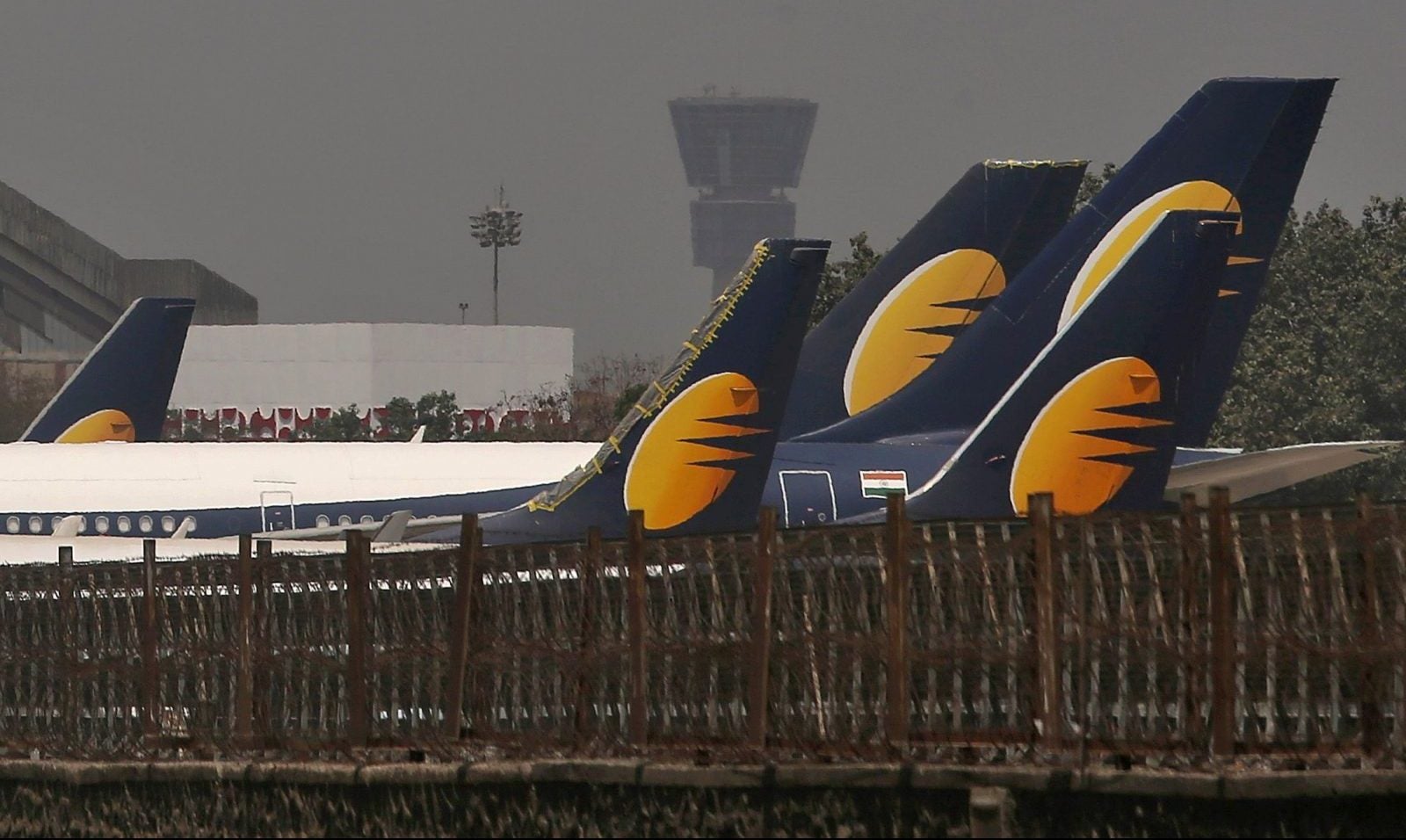Why Indian banks need to move fast to save Jet Airways—and their money
A clutch of Indian lenders are now firmly in control of the country’s oldest private airline, Jet Airways. But they need to move fast to protect their investment, which is swiftly losing altitude along with the carrier’s flagging fortunes.


A clutch of Indian lenders are now firmly in control of the country’s oldest private airline, Jet Airways. But they need to move fast to protect their investment, which is swiftly losing altitude along with the carrier’s flagging fortunes.
On March 25, a State Bank of India (SBI)-led consortium obtained a controlling stake in Jet (pdf), which owes them over $1 billion (around Rs7,000 crore) in debt. The takeover, though, is temporary. The banks plan to rope in a new investor once its operations stabilise.
However, can they succeed where Jet’s founder and former promoter Naresh Goyal failed? The aviation veteran, who founded the company 27 years ago, stepped down from its board after the banks took control.
Despite several attempts over the past few months, Goyal was unable to find a strategic investor willing to inject cash into the struggling airline. Intense competition, lower margins, and higher oil prices have weighed heavily on the airline’s prospects of finding a suitor.
Things have worsened in recent months. With dues pending to lessors, the airline has been forced to ground 78 of its aircraft, resulting in an erosion in market share. Until recently the second largest airline by passengers flown, Jet is now fourth—behind even the beleaguered national carrier Air India:
Jet is now on pace to record a big loss in the current fiscal year ending March 31, on top of a series of losses posted in recent years:
Retail investors have been dumping Jet’s stock as its problems mounted. Its share price has more than halved over the past year:
Now, in order to restore Jet’s lost glory and, perhaps more importantly, to recover their debts, the banks are looking for a buyer as soon as possible. Soon after Goyal stepped down, SBI announced it will be able to find a buyer by May 31. If it doesn’t, there may be trouble, warn analysts.
“Sooner the banks find a buyer, the lesser the value erosion of the airline and the deal could be better,” said Ashvin Parekh, who runs the Mumbai-based consultancy Ashvin Parekh Advisory Services.
Traditionally, lenders to companies are uncomfortable becoming owners, so it is in their best interest to find a more willing buyer quickly. Since lenders taking ownership of companies often comes during times of distress, speed is also important to recover funds put at risk by a shaky borrower.
Will a deal take off?
In 2018, when a controlling stake in Air India was put up for sale by the Indian government, it was unable to attract even a single bid. Jet will probably have better luck.
“One thing that will work in Jet’s favour is that crude oil is priced at less than $70 (a barrel) right now,” said Ashish Nainan, a research analyst at CARE Ratings. “It’s not a very depressed market for anyone trying to enter the airline space at this point of time.”
Air India, by contrast, was put on the block when prices were much higher. Back then, certain domestic and international players expressed some interest. Ultimately, however, the terms of the deal weren’t attractive enough for buyers. Now, for some of those same potential buyers, Jet may present a better option.
With Goyal in control, there were messy governance and control issues. But now, with banks in the cockpit, negotiations can move more quickly, added Parekh.
Buyer beware
It is still a tough sell for Jet’s lenders-turned-owners. For one, the mountainous debt is an overhang. Then, there are staff issues. The airline has delayed salaries to employees, including pilots, who have threatened to strike work from April 01.
“Quite a few pilots have already left the airline to join SpiceJet and IndiGo,” said Nainan. “The key will be whether the new investors are able to gain the confidence of the existing employees and how they can stabilise operations.”